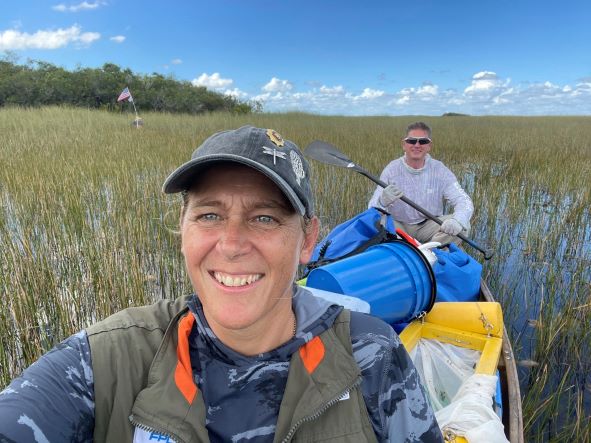As a former NCAA Division I competitive swimmer, Tracie Baker is no stranger to water, and with years of Ironman triathlon training, she’s more experienced than most at pushing her body to its physical limits. So, it was a good thing a group of seasoned explorers chose her to serve as the team’s scientist during its history-making canoe trek deep into the Florida Everglades.
Growing up near Lake Erie in Lindsey, Ohio, and swimming competitively since she was 5 years old, Baker has always had a love for the water, which blossomed into an academic career studying environmental impacts on water quality and its effects on fish and human health.

From Oct. 28 through Nov. 2, Baker, D.V.M., Ph.D., an associate professor of environmental and global health at the University of Florida College of Public Health and Health Professions, and three others made the 130-mile coast-to-coast journey through the Everglades to assess human impact on the world’s largest subtropical wilderness. The 2022 Willoughby Expedition team retraced the canoe trip that was first completed by explorer and scientist Hugh de Laussat Willoughby 125 years ago in 1897.
How did she describe her experience?
“Exhausting,” she said, once back in her lab at the UF Aquatic Pathobiology Laboratory.
As the project’s lead scientist, Baker collected water samples along the way to test for the same water constituents that Willoughby did more than a century ago as well as for those he couldn’t have foreseen, including microplastics and perfluoroalkyl and polyfluoroalkyl substances (PFAS).
“We will document the changes in water chemistry that have taken place due to human impact on the Everglades ecosystem over the last 125 years,” said Baker, a member of the UF Water Institute.

